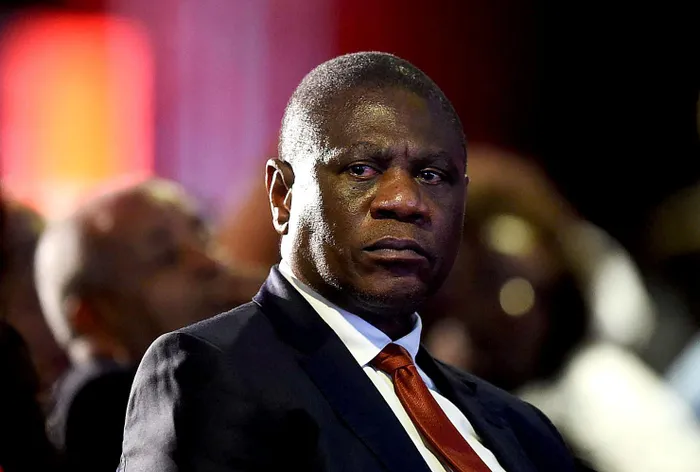Mashatile blames water crisis on municipal mismanagement and corruption

Deputy President Paul Mashatile says South Africa’s worsening water crisis is being fuelled by municipal mismanagement, corruption and collapsing infrastructure.
Image: Itumeleng English/Independent Newspapers
Deputy President Paul Mashatile has blamed the ongoing failure of municipalities across the country to supply water to communities on poor governance and infrastructure, corruption and criminal activity linked to water-tanker operations
Mashatile made the remarks on Tuesday while responding to oral questions in the National Council of Provinces (NCOP) in Cape Town.
He was answering a question from NCOP ANC chief whip Kenneth Mosimanegape Mmoiemang about expanding public–private partnership investment.
Mashatile acknowledged that communities in numerous municipalities are experiencing an ongoing water-supply crisis.
He attributed the continued challenges, which have persisted for several years, to poor governance and inadequate infrastructure.
“Indeed, many of our municipalities are grappling with challenges related to the provision of water and sanitation due to a combination of factors, including poor governance, lack of technical and administrative capacity, inadequate infrastructure investments, poor maintenance and financial mismanagement,” he said.
According to Mashatile, the Department of Water and Sanitation has reported a severe decline in the ability of many municipalities to deliver water to residents.
“This has resulted in a decline in the national average for reliability to 68%, and deteriorating water quality in about 60% of water-supply systems,” he said.
Communities across South Africa have endured persistent water shortages for years.
Many resort to taking to the streets to voice their frustrations, yet with little improvement.
Mashatile said the government is taking decisive steps to address the systemic issues that continue to hinder reliable water and sanitation services.
“Through the Water Task Team, we are tackling water-security challenges by improving infrastructure, reforming institutions and expediting project management in a coordinated approach.”
He said that the Water and Sanitation Indaba held in March proposed key interventions to address the collapse of critical water infrastructure. These recommendations included increased investment through diverse financing options and ensuring the financial sustainability of the sector.
In addition, he said the Department of Water and Sanitation has established a Water Partnership Office within the Development Bank of Southern Africa to help municipalities prepare projects for private-sector investment.
Through this office, several public–private partnerships are already being implemented, including the Olifants River Management Model Programme, he said.
“This programme has been introduced to address bulk water needs, particularly within Limpopo, to support economic development and deliver bulk raw water to municipalities.”
The model operates as a 50-50 public–private partnership, with half of the project cost funded by mining companies and the other half by the government through water-infrastructure grants and the budget facility for infrastructure.
Mashatile added that the Department of Water and Sanitation, water boards and water service authorities are working with the Infrastructure Fund to support more blended-finance water projects over the next three years.
“Honourable Chairperson, in conclusion, the government is aware of, and is responding to, corruption and criminality associated with water-tanker operations,” he said.
He sid that the National Treasury has issued a circular warning municipalities against long-term reliance on water tankers, which should only be used as temporary emergency measures.
“As the government, we call for increased community participation in protecting critical infrastructure. We also urge communities to report suspicious activities and embrace a culture of whistleblowing to expose criminal networks and corruption within the water sector.”
simon.majadibodu@iol.co.za
IOL Politics